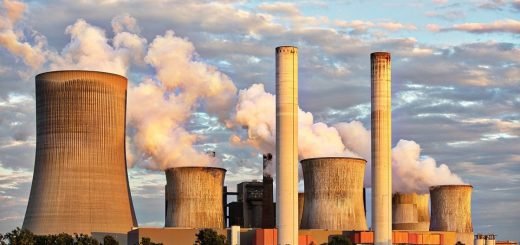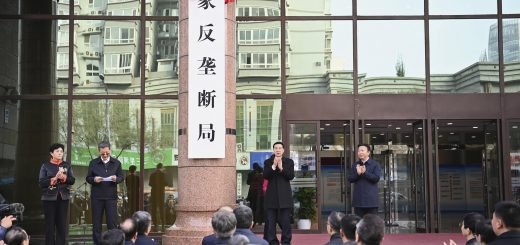Past century revisited
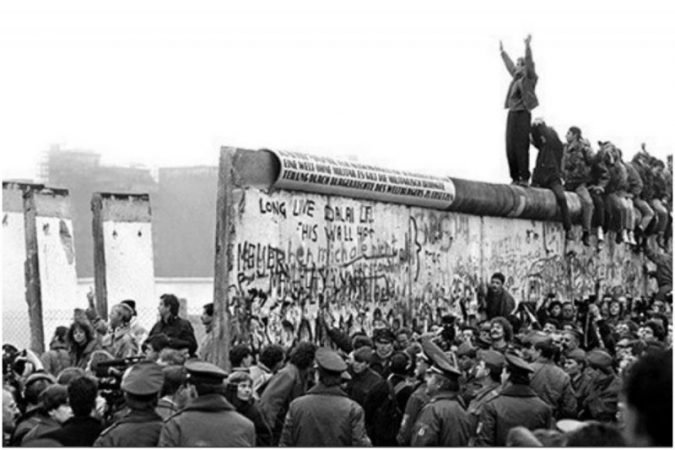
It is 100 years since we were supposedly getting over the war to end all wars, World War I, and forming the League of Nations with the purpose of preventing such a conflict and slaughter happening again. Regrettably, the only good that came out of it was the proposal to form the League of Nations; it was not much more than an idea though otherwise stillborn and we needed another World War before something solid resulted, the United Nations with some teeth, although they need sharpening. It was the time that the Chinese Communist party was formed and has just celebrated its centenary. What have we done in the time, apart from multiplying ourselves by a factor of 3, and perhaps upsetting the planet on the way. There are exciting scientific advances, of course, some of which we must use to address the wasteful manner in which we live.
The 1920s and 1930s were times of turmoil, new ideas. Socialism in the forms of nationalism and communism, each with an end result of forming a ruling elite, who would brook little or no interference from their perceived mission. The damage from WWI caused a Depression in the developed world, many of them democratic in form, and this meant they paid not or were not able to pay enough attention to the looming Nazi power growing in Germany. In China, the communist movement was putting down roots, establishing itself and, in the Far East the colonies of British India and the Dutch East Indies, the elite of those nations were listening with sympathy to the socialism that was being preached in Europe.
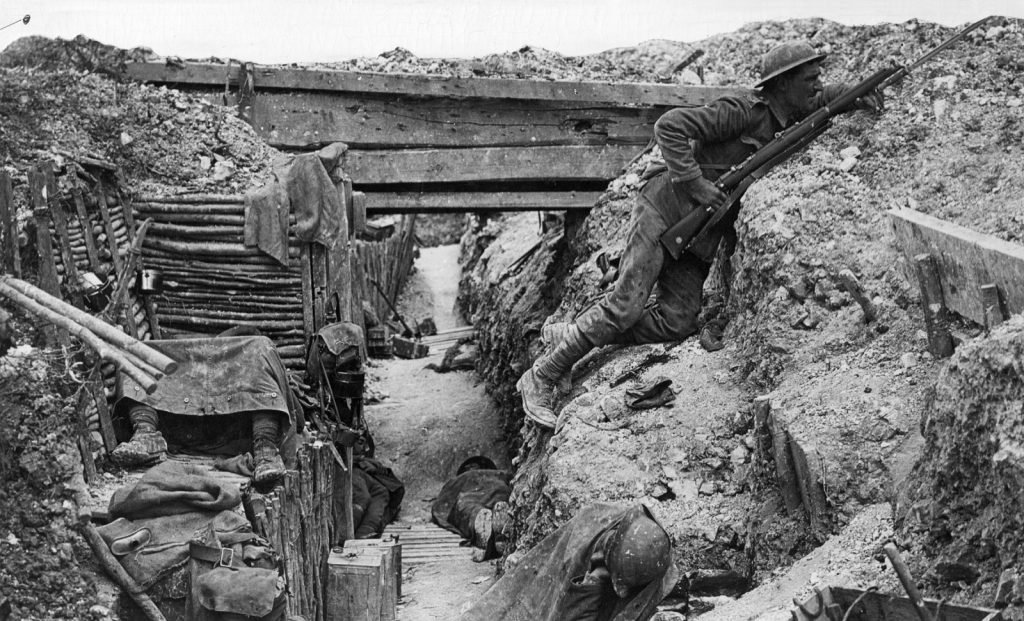
The end of WWII saw the proponents of each doctrine, social/communism and free market capitalism/democracy sharpen their dividing lines which led to the Cold War between east and west. However, this is too simplistic; Britain, for example, after WWII voted in a Socialist Labour government, which promptly set about nationalising key industries and created the National Health Service, all the basics of socialism, central government control. The key industries didn’t prosper, lacking accountability and arguably fleetness of the free market and in time, after Thatcher, were returned to the private sector. This was not entirely successful as times changed, but the National Health Service has been deemed a success in the overall scheme of things, looking after a nation’s health. Perhaps it was different because it only required a social accountability.
Returning to the division of doctrine, emerging from WWII, this saw the sharp divide of Europe between, on the one hand the Lenin/Stalin communist, centrally controlled regimes of the USSR which had gathered within their scope, whether they liked it or not, many of the countries of Eastern Europe. On the other hand, there were the democracies of Western Europe, which were bolstered by the USA. Germany was divided into two parts but Berlin, the capital, which lay in the Soviet jurisdiction, was a separate entity managed by the four allies who had together opposed the Nazis, namely the USA, the USSR, Britain and France. This arrangement continued, not without its problems, until the new president, Kennedy, in 1961 made a declaration against communism which alarmed Kruschev, the Soviet leader by now since Stalin had died. A Wall was put up by East Germany/ USSR in Berlin in 1961, which became a symbol of the freedom of the west against the restrictions that the Soviet Union enforced. The East German communist government was alarmed at the very large number of their skilled citizens who were defecting to the west; the Wall brought the number down to a trickle, lasting until 1989 by when times had changed.
In the East, China at war end was in the grip of a communist movement that was fighting to overcome the nationalist forces of Chiang Kai Chek. The communists prevailed and the nationalists departed for the island of Formosa, today Taiwan, taking with them the Emperor’s ancient, valuable signatures of office, a bone of contention. Meanwhile, Japan was healing from the bitter defeat inflicted on it from WWII with the help of the USA and was showing its resilience in recovery towards becoming one of the fastest growing economies.
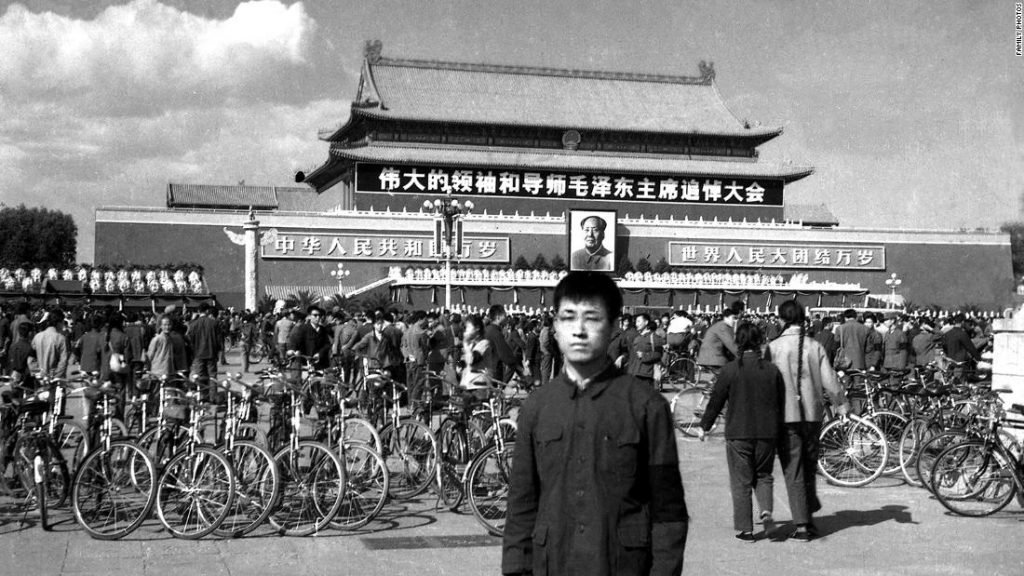
The first test of the new communist China came in the early 1950s in the Korean peninsula, where they wholeheartedly backed the forces of North Korea in their fight against the armies of the south, backed by the USA and its Allies from the western democracies, including Australia. A truce was signed after a few years of hard fighting, with no side obviously prevailing, and Korea was divided between North and South. To this day they have entirely different styles of government, the communist north being dependent on China with the people languishing in poverty while their ruling elite are well off, and the South being one of the Asian ‘tigers’ and one of the most successful democratic economies. The difference is glaring.
The next conflict between communism and a semi pro-democratic form of government, the Vietnam War in the 1960s, had different origins. It was originally part of an anti-colonial struggle to depose the French from their Indo-China possession, which also included Laos and Cambodia. The defining moment came when the French forces were beaten by the N. Vietnamese at Dien Bien Phu in 1954, which was a signal for the French to withdraw. The North Vietnamese government was led by Ho Chi Minh, who had also studied communism in Europe and been persuaded by its ideas.
The American government had been watching closely and were very worried that if all of Vietnam were to fall to communism, it would lead to the rest of Southeast Asia in time succumbing also. As the leader of the ‘free’ world the USA stepped in and gradually increased its presence to the point that it was perceived as full-scale war. The North Vietnamese devised a way in which they could frustrate the American troops by building a network of underground tunnels from which they could appear unexpectedly and avoid direct confrontation with the better armed American troops. The war did not seem to have an end, and either it had to be escalated or the troops withdrawn. The former route would require going to Congress in Washington and, since the war was becoming increasingly unpopular with the public this was not something that the US government would want to do. The Nixon government of the early 1970s decided on a strategic withdrawal and so the whole of Vietnam was taken over by the communist government of the north, the condition which the US had feared. But times had changed. The world was changing. Some countries were prospering and trading. The old communist guard was getting on, some dying.

In the meantime, India and Indonesia, each with current large populations and significant colonial histories, had leaders who had learned in Europe about socialism/communism. However, the countries they would be serving had large other complex problems to resolve. In India’s case they had to deal with its partition with a mainly Islamic country, Pakistan, on each flank. The Nehru led, mainly Hindu, faction had much sympathy with socialism and were suspicious of the west and western aid agencies such as the World Bank, which were not allowed in to help develop the country. India, for the rest of the century, moved slowly but did not make a move to either communism or the western democracies, perhaps because it inherited a system in which much power rested within the state governments. The national or federal government operated from Delhi in the form that the British left behind.
Indonesia spent the first few years from independence in 1947, establishing itself as a whole. Soekarno, the first president, was a gifted orator, and was a firm believer in socialism/communism, but was a poor administrator. The country had to fend off two break away actions in the 1950s in North Sulawesi and West Sumatra provinces, which were put down with some ferocity. An interesting development was Soekarno’s leading with the 1955 Non- aligned Movement which was held in Bandung. This firmly put him in the neutral camp, although his time in Europe had imbued him with left leanings. His inability to take the country out of poverty was greatly frustrating the political elite in Jakarta and when he was deemed to show his leanings towards communism, the Army with the elite had had enough. He had to go and forcibly resigned, bringing Soeharto to power. The USA, who had watched the moves carefully while, at the same time, being involved in Vietnam, were much relieved.
Soeharto made it clear that he had no liking for a communist form of government. He was also quick to realise that he needed the brains from the private sector to handle the economy. He appointed the Berkeley ‘mafia’, UC Berkeley trained economists to deal with the major problems of food, water and education to lift the country out of poverty which they did very successfully for thirty years. The country was run as a benign autocracy with a guided parliament which re-elected Soeharto every 4 years, until the Asian Financial Crisis struck and caused him to step down. However, well by then it was aligned with the western powers and was invited to join the G-17, the organisation of the world’s richest economies.
It should be added that the grouping of Southeast Asian nations – region that my colleague prof. Anis H. Bajrektarevic calls “the most multilateralised portion of Asia – future of that continent” – as it formed an alliance, ASEAN, in August 1967, to establish itself as an independent bloc, headquartered in Jakarta. Currently, there are now 10 countries in the bloc, originally five, with widely differing forms of government.
Come the latter part of the last century, other feuds, some centuries old, reared up to cause some alarm. They were not ostensibly part of the main struggle between rigid rules, centrally controlled communist regimes and the free market western economies, but the one of the Middle East involving several differing elements, on the face of it based on Judaism and its three offset branches, Jewry, Christianity and Islam. On his occasion the struggle had some of its roots in the Balfour declaration of 1917, endorsed in 1926 at a commonwealth conference, and the contrary non-acceptance of Israel after WWII, as a homeland for the Jewish people, by the Palestinians. It has widened out in a determination by a right-wing Islamic fundamentalist group to form a purely Islamic country, a caliphate. It fed off old rivalries and brought differing factions into conflict. It is not settled to this day, and Syria, a land of ancient civilizations, has been torn apart with a refugee crisis that has caused much discomfit in Europe. The politics of the Middle East are very complicated, variations of squabbles centuries old, and possibly unresolvable at this time. They, however, don’t seem to directly affect the main thrust of the proponents of the secular division between the democratic approach and communism to government. Although both the USA and Russia have an involvement, it is not their most important issue, although takes up time.
There are other disruptions in Africa and South America, but not greatly affecting the outcome of the main struggle between left and right. In much of Africa, where colonial power had held sway for many years and where a huge number of slaves had been shipped across the Atlantic to support the American and Caribbean plantations, little had been done to prepare the indigenous peoples to govern themselves. The extractive industries that were put in to take out minerals needed in Europe had systems in place which were devised to ship out the minerals to the controlling country. There was little or no attempt to better the country, in terms of education, infrastructure and skills development, where the extraction had taken place. The result was that the elite of the country, gaining independence, carried on the way things had been before independence and became hugely rich, while the poor just became poorer and poorer. A terrible legacy of colonialism! And certain countries in the north have, in the past few years, been severely affected by fundamental Islamic factions.
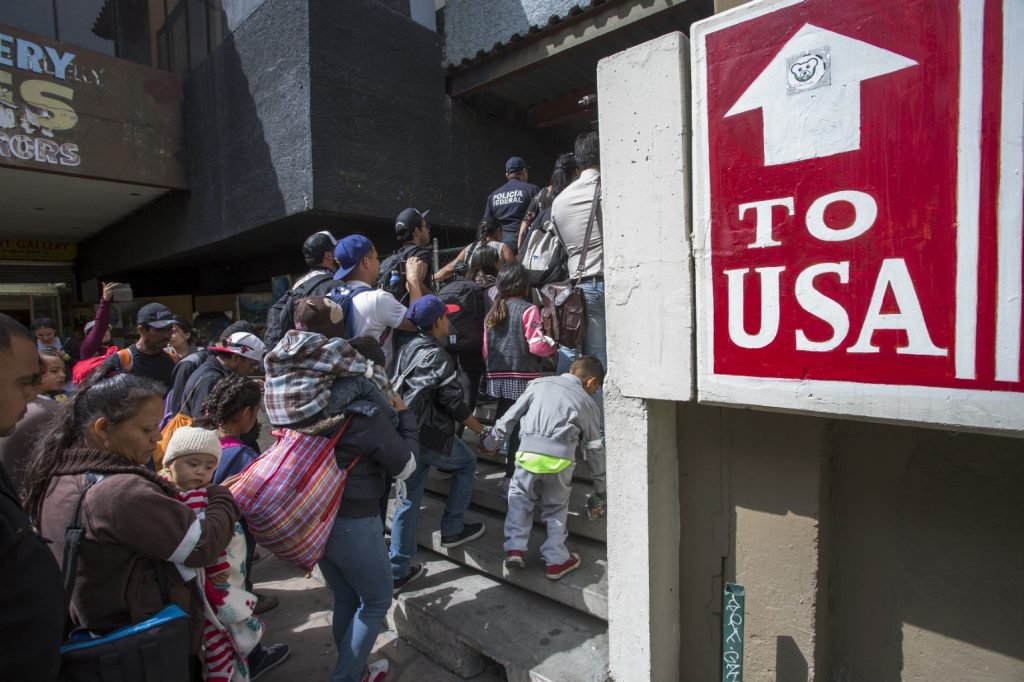
In the case of South (Latin) America, we have a mix of countries and the way they are run, significantly influenced by their Spanish or Portuguese legacy. The main problem is the growing and manufacture and the export of drugs and the emigration of people to the USA to get away from poverty. There is no major war ongoing although there have been attempts by some internal factions to take over a specific country for personal gain, which meets with the people’s resistance.
However, China is a large country with a centrally controlled communist regime in charge. In the past 30-40 years, with the passing of Mao Tse Tung and the accession of Deng the strict rigidity of the rules of government were eased and the economy started to grow. As a result, their economy has grown steadily, if not spectacularly at times, albeit from a comparatively low base and is now one of the largest in the world. They are not averse to taking new ideas from the west, sometimes openly but other times by stealth, which is of considerable concern to the west, which have established the norms, rules and rights of business. There was hope in the 1980s that they were changing and welcoming some democratic freedoms, but this altered in 1989 when a student demonstration was brutally quashed at Tienmanman square. The leaders had taken fright, things were getting out of control, and freedoms had to be curtailed and brought back under control. This was also a warning to the western democracies; there was only one way to do business in China and that was the Chinese way.
In 1997, the lease that the UK government held over the territories that encompassed Hong Kong was coming to an end and the territories were due to be handed back. There was some discussion on trying to extend the lease but this was really a non-starter. One of the terms that the British extracted in the departure agreement was that for the first 50 years the conditions which had been set up for the citizens of Hong Kong would be honoured. China agreed to approve the idea of ‘’one country and two systems’’. However, in recent times with Comrade Xi Jaoping feeling that his and the Chinese government’s power is on the increase he could ignore the agreement. There have been unsettling very large demonstrations in Hong Kong as Beijing turns the screw on democratic freedoms, and Hong Kong is brought in line with direct central government policy.
Furthermore, the government is trying to bring the Uighur people, who are of Islamic faith and live in Xinjiang to the west of China, the largest province, into line by brainwashing them. The Uighurs have been treated to genocide, and are also used, not much better than slaves, to pick Xinjiang cotton, which is a significant and high quality product of this region. This is another worrying example of communist control, as George Orwell highlighted in his book entitled 1984. The UN and the American government have raised the issue strongly, but have been told it is a matter of terrorism!
In the past two decades or so the Chinese have ‘made’ small islands in the South China sea expanding their territorial waters illegally. The ASEAN countries have wakened up to this and showing signs of alarm as China are using these islands as military outposts. In short, they are testing the reaction of the Eastern ASEAN countries, who realistically are not strong enough to resist. The USA are aware of this and watching carefully. It is still China’s government’s aim that Taiwan, R.O.C., comes under Beijing control.
The Chinese government would appear to have a policy to ensure that the country has the ability to widen its borders and, further afield, to secure by whatever means is most suitable the resources that the mother country requires. This would put it in a very strong position among all nations and supersede the work of past dynasties, justifying its central control. A communist Empire.
The other main country which espouses communism as per Leninism is, of course, Russia, which has always vied with the democracies of the west, unlike China which was rather left on its own, distance being a factor, until recent decades. After Kruschev, in the 1980s there was a time for a modicum of ‘honesty’ from the Russian government. They could not keep up with the economy of the USA with which they were attempting to compete. They released their hold on several European countries, such as Poland, Czechoslovakia and Hungary, and withdrew their border to a north-south line bordering Belarus and Ukraine, Estonia and Latvia and into the Black Sea. They retained a small piece of territory next to Lithuania which gives them a better outlet to the Baltic Sea and recently they took the Crimea illegally to secure a position in the Black Sea.
A few of the ‘freed’ countries have adjusted themselves in the years that have followed, for instance the peoples of Czechoslovakia decided to split along nationalistic lines into the Czech Republic and Slovakia. One has to draw attention to the former Yugoslavia, formed as a country of the southern Slavs, which was not part of the Soviet hegemony, which separated somewhat bloodily into its discrete parts, with the demise of Tito. This was the strongman who emerged from WWII and kept the disparate parts of Yugoslavia together and prevented the Soviets from adding it to the total taken. The countries that evolved from Yugoslavia were Serbia, Croatia, Bosnia Herzegovina and Kosovo.
The European Union has greatly enlarged since these countries became independent, could exercise their freewill, and confirmed their willingness to join the EU after invitation. The bloc now adds up to 27 member states and the centre of gravity which was firmly in the west, has shifted eastward significantly.
Russia has to deal with a significant, admittedly rather unwieldy, EU, as well as the powerful alliance, NATO, The North Atlantic Treaty Organisation, which was set up at the end of WWII to protect the western democracies with the involvement of the USA from any potential aggression of the USSR. Since the partial rapprochement of Russia in its adjusted format, over the past 3 decades, there is much less pressure on NATO. It doesn’t stop Russia trying to meddle with the former countries of the Soviet on their borders. Belarus has a regime that is close to the Russians, not necessarily the will of the people, and Ukraine, while looking west towards the EU, has had to fend off Russian aggression in recent times in which they lost Crimea. In the complex Middle East situation Russia offers support to parties that are opposed to western supported ones, for example Assad’s Syria. But overall, Vladimir Putin’s Russia does not pose as much of a long-term threat as the apparent threat offered by China. There is, from the people themselves, a wish to open up the country. However, this can be expected to take some time; change will be slow.
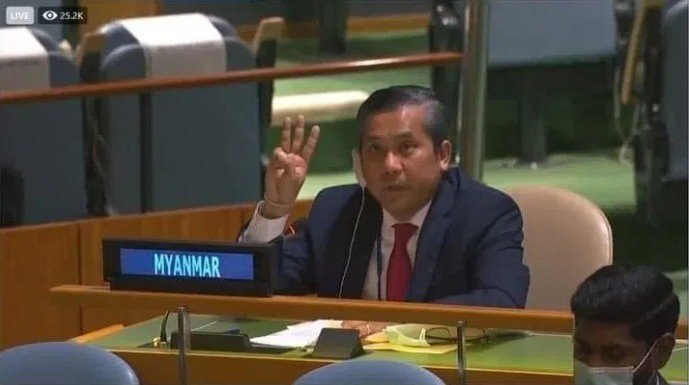
To return to the east, ASEAN as a bloc, partly modelled on the EU, is still feeling its way. In recent times, the military coup occurring in Myanmar has taken ASEAN by surprise. Their offer to mediate has been firmly rejected at the ASEAN annual meeting. This was to be expected as the military have been involved in actions against some of the Myanmar people almost continuously since Independence and in recent years the military have exercised utmost savagery against the Rohingya people. The country is of great strategic value to China and hence the Myanmarese can rely on their backing. Its value, apart from Myanmar’s considerable resources, e.g. the Jade mines of Kachin province, a nice earner for the military elite, lies in the fact that Myanmar provides a gateway to the Indian Ocean and thence access to China’s significant resources in Africa, where they have been slowly entrenching themselves for the part of half a century.
Looking ahead
Taking note of President Xi’s recent upbeat speech at the Centenary of the Chinese Communist Party, it is clear that the government of China feels confident that they are now in a strong position to push on with expanding their strategic aims. These will be pushed ahead by fair means or foul, honestly or not, by stealth if need be. If anyone dares to oppose them will get a ‘’bash’’ on the head! It is a warning to the western Allies. ASEAN should be concerned about the South China Sea.
Russia, in the next phase, will want to not upset matters too much and be reasonably content to have matters stay as they are. A significant revenue for them is oil supply to the EU. They have a growing mood in the populace that wants more freedom. This will be difficult to resist.
The Middle East has rumbled on for centuries. A solution does not appear to be likely in the short term although the majority of people just want peace so that they may live with a feeling of security. They cannot reach this position because the leaders feel they have some God-given mission to achieve first. There are pockets relatively peaceful, e.g. The Emirates.
The Liberal democracies of the west have some internal voices of dissent, but at the moment their biggest problem is dealing with a refugee crisis caused by the Syrian mess, and the peoples coming from Africa running away from poverty. These are all heading for Europe. The other area where there is a significant problem is the southern USA where there is an unrelenting movement of peoples coming from Central and South America, trying to escape poverty and/or poor government.
The problem has become larger in the past half century; the population has tripled without our becoming aware. The CO2, not surprisingly, has also increased which has alarmed some scientists, and the two issues may be related, because we breathe out CO2 as well as significantly use up more resources some of which, in turn, generate CO2. We must remember, however, that carbon dioxide is a building block of life; below 150 ppm the world starts dying, both flora and fauna. The world, whatever political persuasion, communist or democratic, has to take notice of the climate issue which is to be highlighted at the COP26 conference in November this year. It is interesting that the leading countries espousing these opposite forms of government, China and USA, are responsible for 36% of the CO2 output of the world, each of them, so far, shy of taking a leadership role. Will we see much progress on this issue if they don’t take a leadership role?
The Future
Science, building on what came before, has achieved almost unbelievable advances in less than a century. One of the foremost of them was finding the properties of the silicon chip, which led to the computer, becoming commercially available from the 1960s and thereafter aiding all aspects of scientific endeavour. Now we are looking at the digital age, and on into quantum mechanics and artificial intelligence. We have broken the barriers of space and there is a veritable limitless opportunity to be explored.
On the other hand, there are many more of us, 8+ billion as against 3- billion in the 1960s and we haven’t yet resolved the problems of poverty, pollution and paucity of some of our key resources, such as water, or why we have an apparent climate crisis. The problems have only become bigger, which means the millennial and subsequent generations who will be brought up with the new sciences from a young age will have plenty to do. What sort of government will they have dictated to them or will they resolve a better system that embraces the better points of each, so long as there is adequate freedom of action?
The world is changing; almost two thirds of its population already live in Asia and there is a shift in the ethnic balance. The United Nations is more important than ever; it has disappointed in not getting involved in a positive and robust way in certain disputes where a form of genocide has taken place, but they are constrained by their remit. Perhaps it requires a change of location from NY to reflect the changing population distribution and a time to review their raison d’etre.
The new generation have inherited a number of problems but, at the same time, they have the skills and tools to deal with them. One can but hope they do use them and with common sense.



